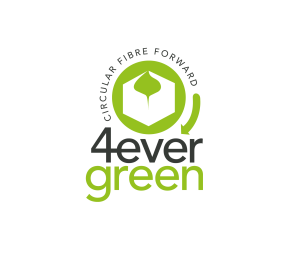4evergreen is an alliance formed by CEPI, the European association representing the paper industry, to boost the role of fiber-based packaging in a sustainable, circular economy. 4evergreen brings together major industry members from across the fiber-based packaging value chain, from brand owners and retailers to paper and board producers, packaging converters, and technology and materials suppliers as well as waste sorters and collectors.
“This is a unique alliance as it truly gathers the end-to-end packaging value chain around the same table for the first time. As a global chemicals supplier to the paper and board industry, we’re an essential part of the value chain and contribute to the development of fiber-based packaging materials. Ensuring circularity and minimizing the environmental impact over the entire lifecycle of packaging requires engagement from all stakeholders,” says Mats Berg, Director for Global Business Development in the Pulp & Paper segment at Kemira.
Ensuring circularity and minimizing the environmental impact over the entire lifecycle of fiber-based packaging requires engagement from the whole value chain.
Chemistry has a crucial, yet often invisible role in fiber-based packaging: without it, paper and board cannot be turned into fit-for-purpose packages that have the required functionalities, such as stiffness, strength, and hydrophopicity and that are hygienic and safe to use. The movement to find alternatives to plastic as packaging material has also increased the push toward full recyclability and biodegradability of packaging materials.
“Recyclability is one of the topics for the value chain to drive forward. In Europe, paper and board recycling rates are quite high, and maintaining and, better yet, improving the good level should be a focus whenever new fiber-based packaging materials are developed. Also, more reprocessing capacity is needed to efficiently treat the complex materials,” Berg mentions. “Another issue the industry is currently working to solve is how to increase the quality and cleanliness of recycled fiber so that it could be used more broadly, for example in food contact materials.”
The change in the packaging market has been driven by consumer attitudes and new packaging-related regulation such as the EU ban for single-use plastics. For now, the rise of environmental concerns has favored the fiber-based packaging materials, but the future holds both opportunities and challenges for the paper and board industry. Recently, Kemira commissioned a future scenario work on food packaging with an international panel of industry experts. The report identifies four scenarios, which provide plausible alternatives for what consumer behavior, packaging trends, and recycling could look like in ten years’ time.
“In the current landscape, fiber-based packaging has an upper hand compared to plastic, but it is not given that the momentum will last. The scenarios revealed possible futures where consumer attitudes have shifted and where e.g. different types of packaging materials are used abundantly. This is the right time for the fiber-based value chain to work together and make a tangible impact on the future of the packaging industry.”
From brand owners’ sustainability pledges to functional chemistry
Many brand owners have set ambitious goals already to 2025 for full packaging recyclability and compostability of their packaging or are even steering toward reusability.
“Brand owners’ sustainability pledges are naturally reflected on the paper and board producers’ and packaging converters’ agenda. Many food service and liquid packaging board producers, for instance, have set similar goals to gradually move away from fossil-based raw materials in their production and to replace e.g. polyethylene (PE) and aluminum in their products. As a chemical supplier to the industry, we work toward the same goals,” says Mats Berg.
One recent example is the development of barrier coatings. Kemira’s innovative barrier technology reduces and replaces plastics and fluorochemicals used in food packaging to create e.g. oil and grease resistance for food service board and wrapping paper. The new water-based dispersion barrier enables fully recyclable and re-pulpable end products.
“We’ve also taken steps forward e.g. in improving lightweighting and increasing the strength of board, working closely together with our customers. Solutions like this improve both the functionality and the sustainability of fiber-based packaging and help the paper and board industry to develop products that can be used in an even broader set of applications than today.”
Toward 100% bio-based chemistries
An important focus area of the R&D work at Kemira is to complement and replace fossil-based raw materials in products with renewable, bio-based ones. Recently, Kemira introduced a new bio-based internal sizing chemistry for hydrophobation of paper and board. It is made from sunflower oil instead of fossil-based olefins and thus helps increase the share of renewable raw materials in papermaking.
The work toward new, 100% bio-based chemistries for the paper and board industry is also carried out e.g. in an on-going EU project called VEHICLE. Together with the consortium, Kemira is developing totally bio-based, renewable polymer products from wood biomass side-streams originating from pulp processing.
“This is again something that couldn’t be done alone, but genuine value chain collaboration is needed: from the raw material streams, the processing technology, and chemistry and application expertise to the end customers,” Berg points out.
In another, recently started project Piloting alternatives to plastics, 52 European companies work with the VTT Technical Research Centre of Finland to scale up new generation fiber products developed in laboratories to industrial production. The targets of the three-year pilot project include replacing plastics used e.g. in food packaging, textiles, hygiene, and construction materials with fiber-based materials. Kemira is in the steering group of the project.
“Going from laboratory to piloting is an important but also a very challenging step of new product development. Collaboration in this project will provide new insight into both the technical and economic feasibility of the materials tested and valuable information on how to develop chemistries for the future fiber-based materials.”
4evergreen alliance is an initiative of Cepi, the European association representing the paper industry. The following organizations actively participate in the 4evergreen project:
Ahlstrom Munksjö, Amcor, AR Packaging, Aspapel, Baumer hhs GmbH, BillerudKorsnäs, Borregaard, Burgo, Cardbox Packaging, Citeo, CTP, Danone, DS Smith, Elopak, FH Campus Wien, Fostplus, Graphic Packaging International, Heinzel Group, Holmen, Huhtamäki, IKEA, International Paper, Kellogg’s, Kemira, Koehler, Kotkamills, Leonhard Kurz Stiftung &Co. KG, MARS , Mayr-Melnhof Group, Metsä Board, Michelman, Mondi, Nestlé, Procter & Gamble, Reno de Medici, Sappi, SCA, Schur Group, SEDA, SIG, Smurfit Kappa, Sonoco, Stora Enso, Tetra Pak, Tomra, UPM, Valmet, Van Genechten Packaging Group, VTT, Walki, WestRock Group.


